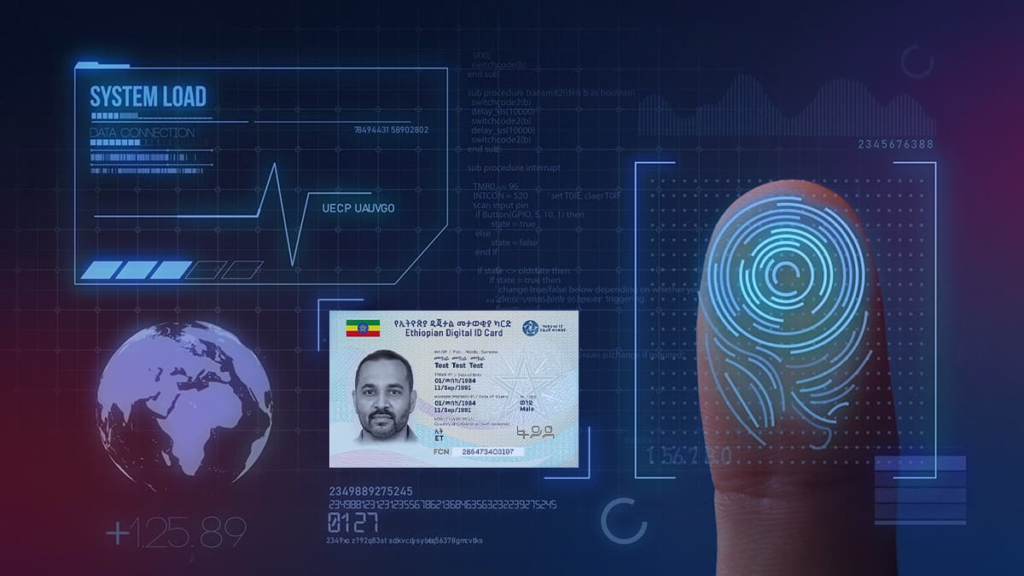Introduction
In recent years, the Sultanate of Oman has been stepping into the digital era with remarkable confidence. One of the most powerful symbols of this transformation is the establishment of digital identity systems. These systems are not just a technical upgrade but a social shift that influences how citizens, residents, and businesses interact with government services and each other. A digital identity may sound simple on the surface just a virtual way of proving who you are but in reality, it represents efficiency, security, trust, and accessibility. Oman’s investment in digital identity is shaping its future as a modern nation built on strong digital foundations.
The Rise of Digital Transformation in Oman
Oman has long recognized the importance of technology in diversifying its economy and enhancing the quality of life for its people. With Vision 2040 as a guiding blueprint, digital transformation is no longer optional but essential. At the heart of this transformation lies the ability to create trusted, verifiable, and secure identities for everyone. Digital identity systems are central to connecting citizens with government platforms, simplifying processes, and ensuring services are delivered smoothly and transparently.
The rise of these systems reflects Oman’s focus on making public services more accessible, cutting down bureaucracy, and creating an inclusive digital society. Instead of waiting in long lines at government offices, people can now complete services with just a few clicks this is the power of digital identity.
What Is a Digital Identity System?
A digital identity system is a secure, electronic version of a person’s identification. It allows individuals to prove who they are online without relying on physical documents. For Oman, this means integrating biometrics, smart ID cards, mobile authentication, and secure platforms into one ecosystem. Whether someone is applying for a driver’s license, accessing healthcare, paying taxes, or setting up a new business, digital identity makes the process faster, safer, and more reliable.
Think of it as a digital passport that unlocks both government and private sector services. The key is trust. A trusted digital identity eliminates the risk of fraud, protects personal data, and ensures only authorized users gain access.

Why Oman Needs Digital Identity Systems
For Oman, digital identity systems are more than just a convenience. They are essential for building a future-ready nation. With a growing youth population, high smartphone penetration, and increasing digital expectations, citizens demand services that are quick, reliable, and secure.
Digital identity meets this demand by:
- Reducing paperwork and saving time for both citizens and officials.
- Enhancing security and minimizing risks of fraud or impersonation.
- Supporting e-governance initiatives and online transactions.
- Creating trust between government, businesses, and individuals.
- Encouraging innovation and boosting the digital economy.
In essence, digital identity empowers every Omani to interact with the state and society in a modern way, aligned with global trends.
The Building Blocks of Oman’s Digital Identity
Oman’s approach to digital identity is holistic, combining multiple technologies and strategies. Key elements include:
- Smart ID Cards: Equipped with electronic chips, these cards serve as a gateway to access digital services.
- Biometric Verification: Fingerprint and facial recognition add an extra layer of security.
- Mobile Authentication: Allowing users to verify their identity directly from smartphones.
- Secure Platforms: Government portals and apps ensure smooth access without compromising data privacy.
These building blocks are designed to integrate seamlessly, making the system user-friendly while maintaining strong security standards.
Benefits for Citizens
For everyday Omanis, the advantages of digital identity systems are tangible. Imagine renewing a passport without stepping outside your home, or paying electricity bills without standing in queues. With digital identity, tasks that once required hours can now be completed in minutes.
Citizens enjoy:
- Faster access to essential services.
- Reduced need for carrying multiple physical documents.
- Assurance that their data is protected with advanced security measures.
- Access to both local and international digital services through one platform.
This accessibility enhances daily life while creating a sense of empowerment. People can focus more on their goals rather than wasting time navigating paperwork.
Opportunities for Businesses
Digital identity is not just about individuals it also opens new opportunities for the private sector. Companies can verify customer identities faster, streamline onboarding processes, and reduce risks of fraud. Banks, telecom providers, healthcare institutions, and e-commerce platforms all benefit from having a reliable way to confirm who they are dealing with.
For small businesses and entrepreneurs, this is particularly valuable. Opening a company, applying for licenses, or completing financial transactions becomes less complicated. This creates an environment where innovation can flourish, and startups can grow without being bogged down by administrative barriers.
Security and Trust
One of the main concerns people have about digital systems is security. Oman’s digital identity frameworks are designed with this in mind. Advanced encryption, biometrics, and secure platforms ensure that personal information remains private and cannot be misused.
Building trust is at the core of the system. When people feel confident that their digital identity is safe, they are more willing to adopt it. This trust strengthens the relationship between the government and citizens, laying the foundation for a truly digital society.

Challenges Ahead
No system comes without challenges, and Oman’s digital identity journey is no exception. Some of the main hurdles include:
- Ensuring that all citizens, including those in rural areas, have equal access.
- Educating people about how to use digital identity safely.
- Addressing cybersecurity threats that evolve over time.
- Maintaining seamless coordination between different government and private sector systems.
However, these challenges are not roadblocks but steppingstones. With proper awareness campaigns, investment in infrastructure, and continuous updates, Oman can overcome them.
Digital Identity and Vision 2040
Oman’s Vision 2040 aims to create a knowledge-based economy where technology plays a central role in development. Digital identity systems perfectly align with this goal. By promoting efficiency, transparency, and innovation, they contribute directly to national objectives.
They also help Oman become more globally competitive. Countries with strong digital identity systems are seen as modern, reliable, and attractive for investment. For Oman, this could mean more opportunities in trade, tourism, and international partnerships.
A Human-Centered Approach
What makes Oman’s digital identity systems truly impactful is their focus on people. Technology alone is not enough; it must serve the human experience. By prioritizing simplicity, inclusivity, and accessibility, Oman ensures that no one is left behind.
Whether it’s a young student applying for a scholarship, an entrepreneur registering a business, or an elderly person seeking healthcare, the system is designed to make life easier. This human-centered approach makes digital identity not just a technical achievement but a social one.
Looking to the Future
The journey of digital identity in Oman is just beginning. As technology continues to advance, new possibilities will emerge such as integrating artificial intelligence, blockchain verification, and cross-border digital identities. These innovations could further enhance security and convenience, opening doors for global collaboration.
In the coming years, Oman is likely to see digital identity become a natural part of everyday life. Just as we cannot imagine living without smartphones today, the next generation may find it impossible to function without their digital identity.
Conclusion
Oman’s digital identity systems are more than a government initiative they represent a vision for the future. They symbolize trust, efficiency, and inclusivity, while giving citizens and businesses the tools they need to thrive in the digital age.
As the Sultanate continues on its path of digital transformation, these systems will play a pivotal role in shaping a smarter, safer, and more connected society. The journey may come with challenges, but the opportunities are vast and inspiring. Oman is not just adopting technology; it is empowering its people with the digital keys to a brighter tomorrow.
Also Read – Transforming Oman’s Healthcare: The Powerful Role of Robotics



